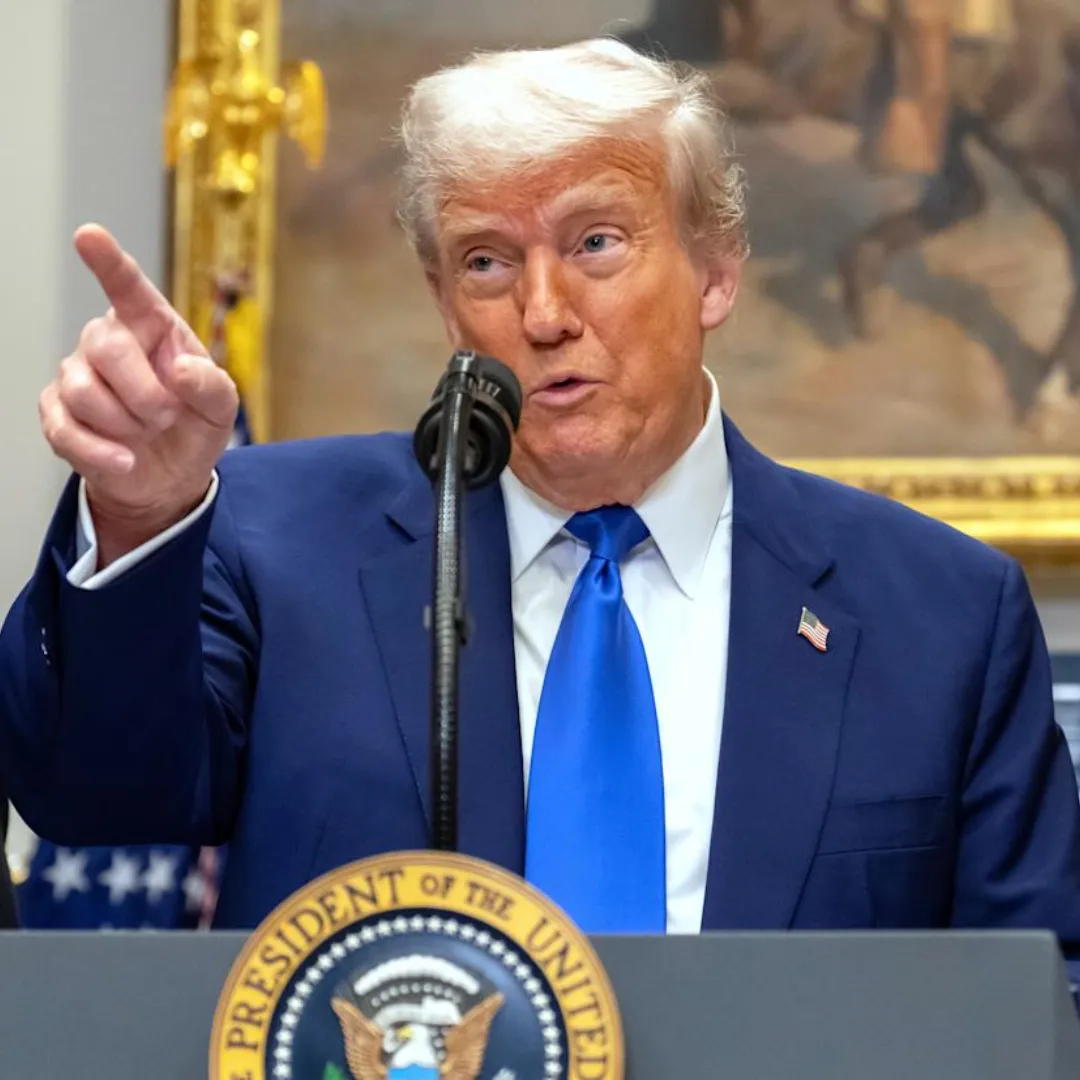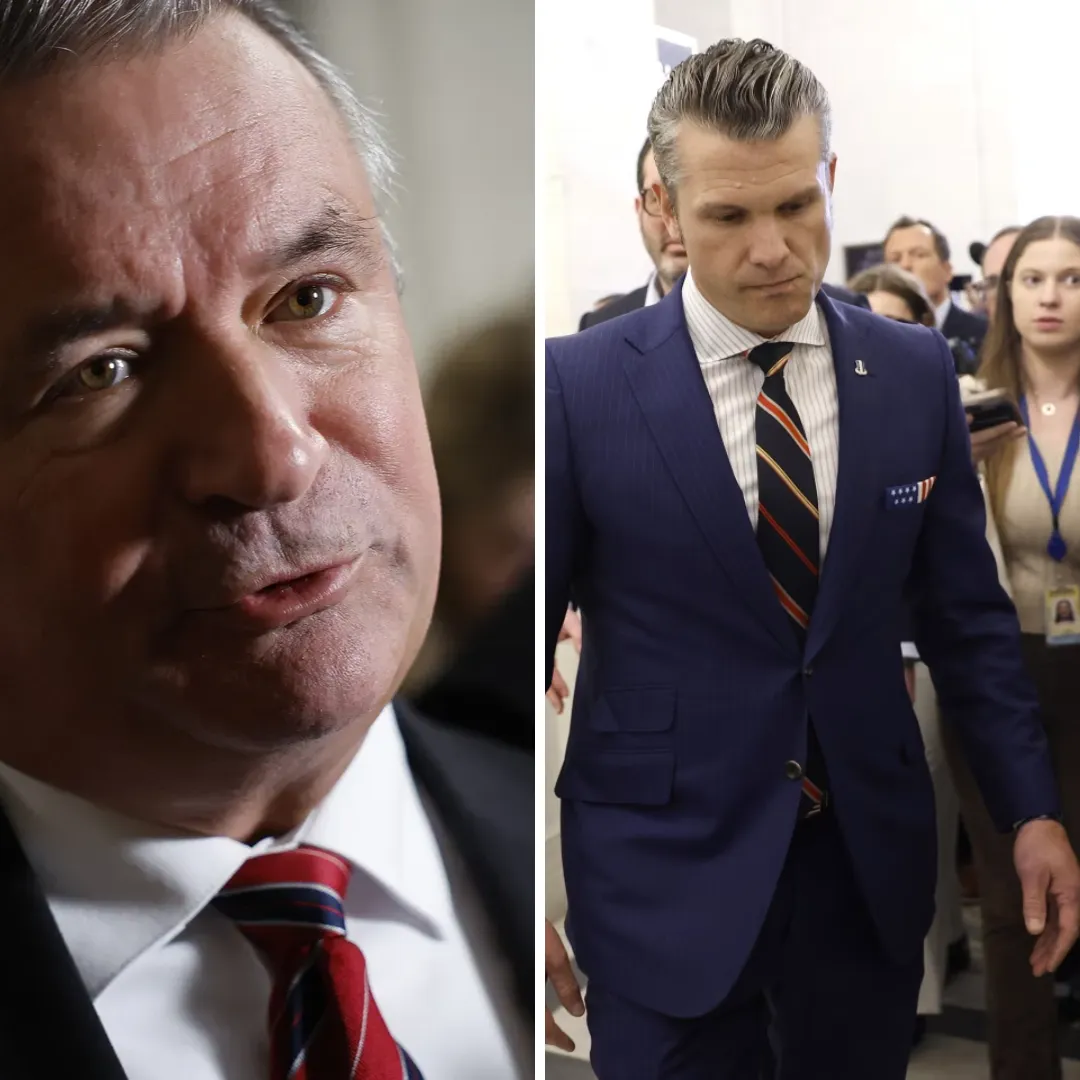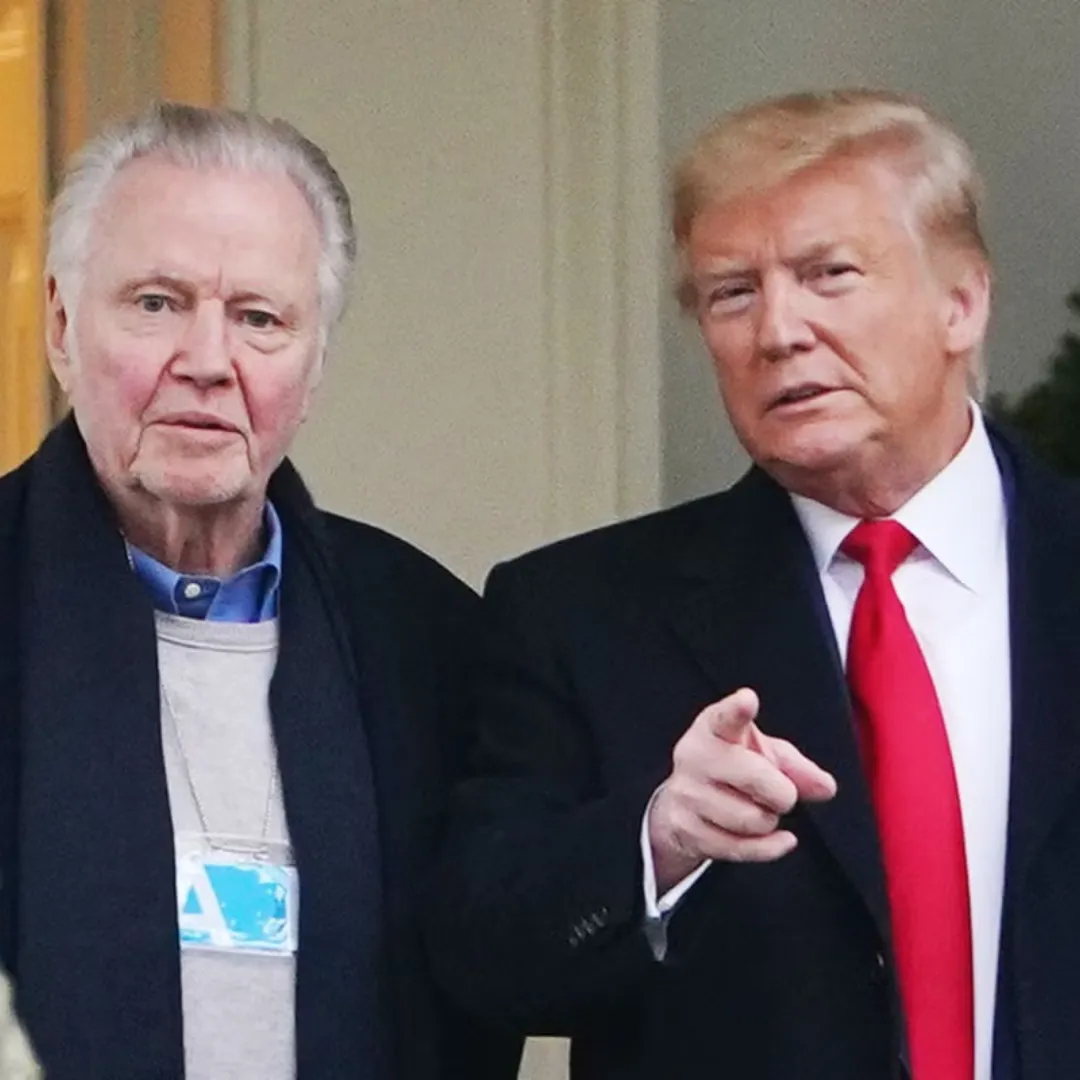
Hollywood, long considered the global capital of film, is now at the center of a politically charged cultural crusade led by one of its most iconic yet controversial figures, Jon Voight.
At 86, the Academy Award-winning actor is once again making headlines—this time not for a new movie, but for spearheading a high-stakes plan that he says could save American cinema from international decline.
The plan, which involves a sweeping 100 percent tariff on all foreign films, has been embraced by President Donald Trump, who is framing it as a patriotic effort to revive the United States' cultural dominance.
According to Voight, he and producer Steven Paul first brought the idea to Trump in private discussions. Now, the former president—who recently returned to the White House for a second term—is making it a centerpiece of his broader vision for what he calls “a Golden Age in Arts and Culture.”
Speaking to Variety, Voight said Trump is fully committed to making Hollywood the heart of global entertainment once again. “He wants us to be the Hollywood of old,” Voight stated, describing a vision steeped in nostalgia and national pride.
Voight insists the initiative is not about political posturing. “This shouldn’t be political,” he said. “I don’t know the political identities of the people we’ve talked to. We’ve talked to a lot of people here. I don’t distinguish them on their party affiliation. And if we can come up with a plan that can be executed, he’ll back us.”
But in the polarized world of American politics and entertainment, there is no escaping controversy. The reaction to Trump’s proposed tariffs has been swift and divided.
Industry leaders from both Hollywood and Washington have voiced concern, arguing that such protectionist measures could damage international relationships, stifle creativity, and backfire economically.
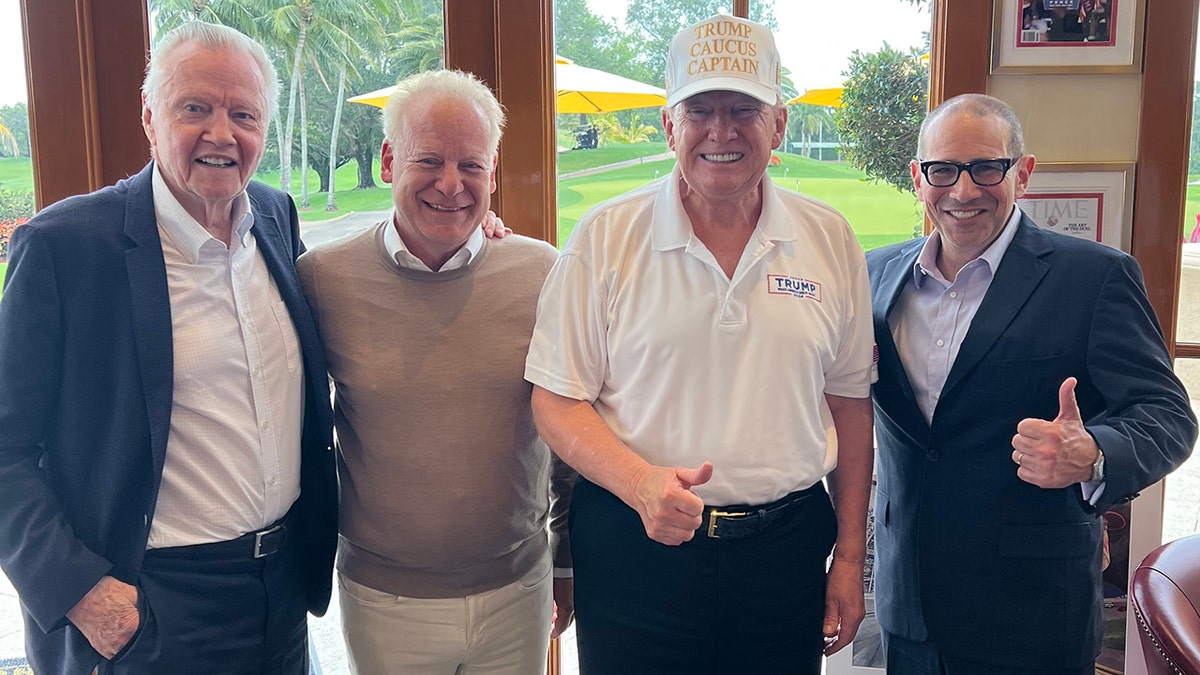
Yet Voight remains unfazed by the critics. “We’ve gotten a lot of good responses from people,” he claimed, suggesting that a silent majority within the industry supports the effort.
Trump, never one to shy away from dramatic declarations, took to Truth Social this week to defend the policy, claiming foreign governments are actively undermining American cinema by luring filmmakers and studios overseas with massive financial incentives.
“Other countries are offering all sorts of incentives to draw our filmmakers and studios away from the United States,” he wrote, calling the matter a “national security threat.”
It’s not the first time Trump has linked arts and culture with national strength. In a series of public statements dating back to January, he has made clear that revitalizing Hollywood is as important to his administration as reviving American manufacturing or closing the southern border.
Earlier this year, Trump announced the appointment of Jon Voight, Mel Gibson, and Sylvester Stallone as “special ambassadors” to Hollywood, describing the trio as his trusted cultural advisors.
“These three very talented people will be my eyes and ears,” he said. “And I will get done what they suggest. It will again be, like The United States of America itself, The Golden Age of Hollywood!”
In a move that stunned Washington’s arts establishment, Trump also declared himself the new chair of the Kennedy Center’s Board of Trustees in February, unilaterally dismissing multiple board members.
“I have decided to immediately terminate multiple individuals from the Board of Trustees, including the Chairman, who do not share our Vision for a Golden Age in Arts and Culture,” Trump announced. “THE BEST IS YET TO COME!”
These unprecedented actions reflect a wider strategy to consolidate cultural influence under the executive branch, a stark departure from the traditional arms-length relationship between the federal government and the arts.

While previous presidents have advocated for funding or policy changes in support of the arts, Trump’s approach is more forceful, personal, and ideologically driven.
Voight, for his part, is comfortable in this role. A staunch conservative and one of Trump’s most loyal celebrity allies, he has used his platform in recent years to defend the former president through a variety of public appearances and video messages.
He was awarded the National Medal of Arts by Trump in 2019, an honor that further cemented their political and cultural alliance.
In the interview with Variety, Voight likened Hollywood’s current state to that of Detroit’s manufacturing collapse—a decline he sees as avoidable if decisive action is taken now. “We’ve got to roll up our sleeves here. We can’t let it go down the drain like Detroit,” he said.
The analogy is not without irony. Much like Detroit’s struggles against globalization, Hollywood is facing increasing pressure from international markets.
Streaming services have made borders irrelevant, and foreign studios, particularly in South Korea, India, and China, are producing world-class content that draws global audiences and wins awards.
Voight’s plan, endorsed by Trump, seeks to reverse this trend by making it far more expensive for foreign films to compete on American soil.
Critics argue the plan is economically risky and culturally backward. “This is the opposite of what a vibrant arts industry needs,” one Hollywood executive said anonymously. “We thrive on global collaboration. Tariffs like this could isolate American cinema and make us look insecure, not strong.”
But to Trump and Voight, the issue is one of cultural survival. Trump believes American stories, values, and artists are being crowded out, and he sees the solution not in market adaptation but in government enforcement.
It’s a strategy in line with his broader “America First” approach that characterized his previous administration. From steel to semiconductors, Trump has shown a consistent belief that tariffs can be used to protect and revive domestic industries. Now, he’s applying that same logic to entertainment.
Voight and Paul are also working on the practical side of implementation. The two have reportedly been in talks with legal experts, studio heads, and independent filmmakers to craft a framework that could enforce such tariffs while surviving court challenges and trade backlash.
“It’s a challenge, yes,” Voight acknowledged, “but the rewards could be enormous. We’re talking about revitalizing an entire industry.”
Supporters of the plan see it as a bold and necessary corrective to what they view as a decades-long decline in American cultural confidence. They argue that Hollywood has lost its way, pandering to foreign audiences and overseas investors while abandoning the values that once made it a global powerhouse.
They blame this shift not only for box office stagnation but for a perceived loss of moral clarity and artistic integrity.
Detractors see something more sinister—a thinly veiled culture war designed to punish dissent and reward loyalty. They point to Trump’s past feuds with Hollywood elites and his efforts to defund public broadcasting as evidence that the administration’s push is more about politics than policy.
Still, it’s impossible to deny the symbolic power of a tariff plan aimed at protecting Hollywood. It taps into a deep well of American nostalgia and cultural pride, especially among older voters who remember the glamour and prestige of mid-century cinema. And for Trump, whose political brand is built on reclaiming a mythic past, it’s a perfect narrative vehicle.
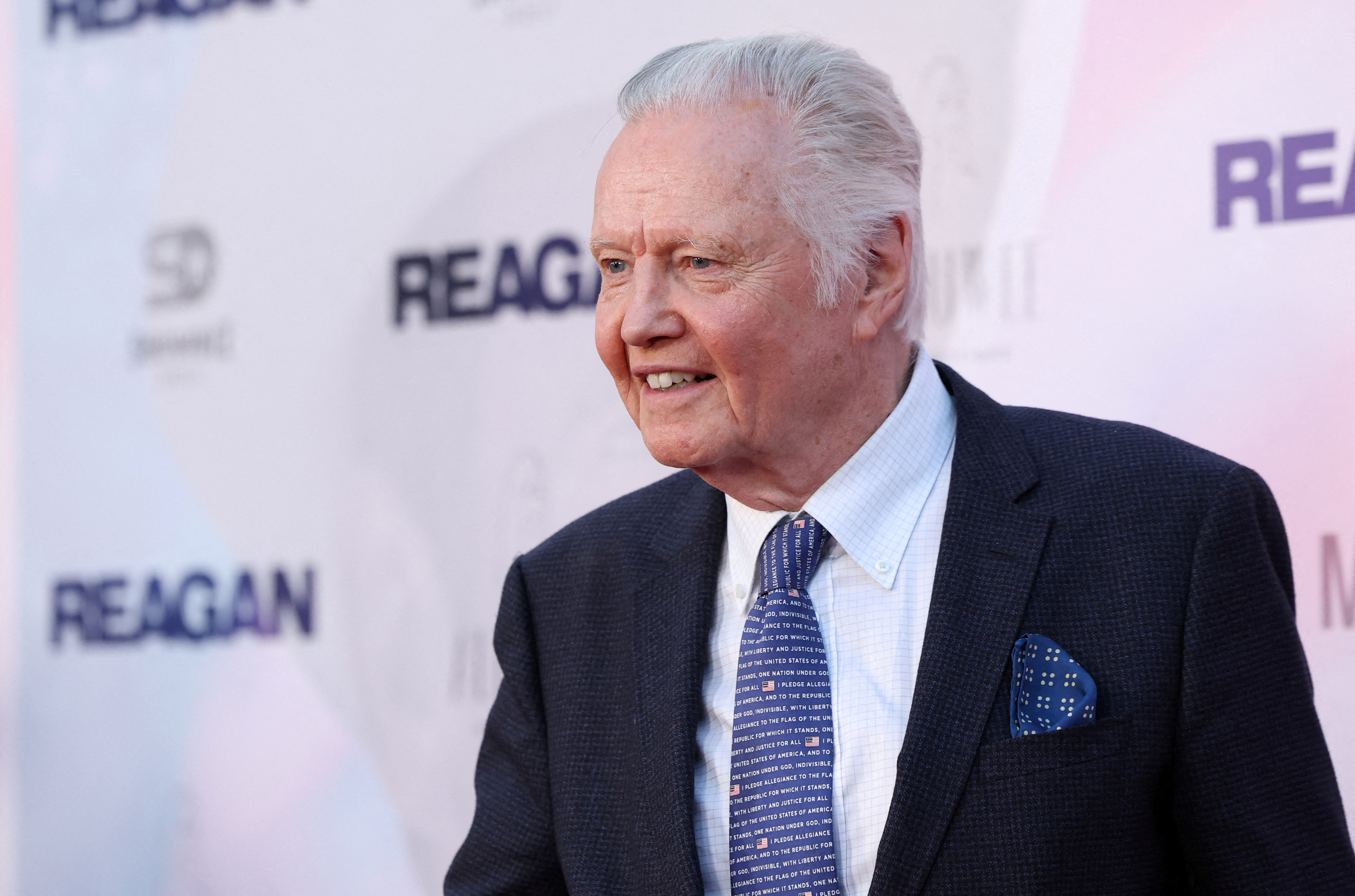
For Voight, this is personal. He’s watched Hollywood change dramatically since his breakout in the 1969 film Midnight Cowboy, and he believes the industry has lost its soul. “We need to care again,” he said. “And thank God the president cares about Hollywood and movies.”
The coming months will test the strength of this plan—and its political viability. Trade experts warn that such tariffs could invite retaliation from other countries, potentially hurting American exports and sparking disputes at the World Trade Organization.
Domestic theater chains and distributors could also suffer, particularly if consumers reject the limited film selection that might result from restricted imports.
Yet Trump and Voight remain undeterred. Their message is one of urgency, legacy, and cultural revival. Whether Hollywood’s future lies in tariffs or in open markets remains to be seen, but one thing is certain: a new act has begun in the long, dramatic story of American cinema—and Jon Voight is playing a leading role.


